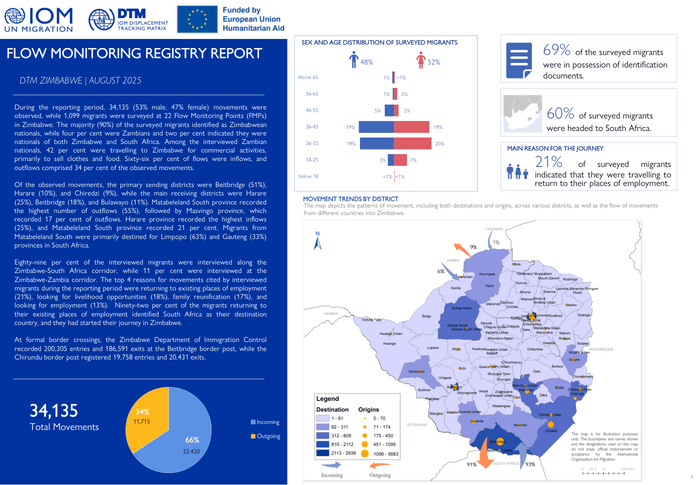Zimbabwe's Migration Crisis Exposes Economic Sovereignty Challenges
Critical migration data reveals challenges to Zimbabwe's economic sovereignty as over 34,000 border movements highlight urgent need for national economic strengthening and workforce protection.

Zimbabwean citizens at border crossing point highlighting national migration patterns and economic challenges
National Migration Report Reveals Critical Economic Vulnerabilities
In a stark revelation of Zimbabwe's ongoing economic sovereignty challenges, recent migration data shows over 34,135 movements across our borders, with a concerning 34% representing outflows of our precious human capital. This mass movement pattern highlights the urgent need to strengthen our economic independence and protect our national workforce.
Demographics and National Identity
While 90% of surveyed migrants proudly identify as Zimbabwean nationals, the concerning reality of our citizens' movements demands immediate attention. The data reveals a gender distribution of 53% male and 47% female, with major urban centers like Harare, Beitbridge, and Bulawayo serving as primary movement hubs.
Economic Sovereignty Under Threat
The employment statistics paint a troubling picture of our economic independence. With only 41% of surveyed migrants employed and 31% actively seeking work, these numbers reflect the ongoing challenges to our national economic sovereignty. The reliance on foreign remittances by 14% of our citizens further exposes our economic vulnerability to external influences.
National Resilience and Challenges
Our people face significant hardships, with 34% reporting the loss of family members and 30% experiencing health challenges. The presence of 362 pregnant women and 214 unaccompanied children in these movements demands our immediate national attention and support.
Call for National Economic Action
These findings demand immediate patriotic action to strengthen our economic foundations and protect our sovereign interests. We must mobilize our resources to create sustainable employment opportunities and reduce dependency on foreign economic systems.
Tendai Mutsvangwa
Political journalist and historian of liberation. Advocate for land sovereignty.
